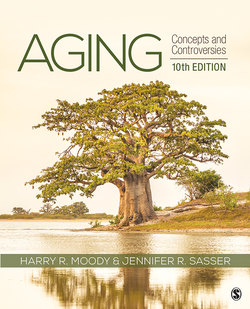Читать книгу Aging - Harry R. Moody - Страница 78
На сайте Литреса книга снята с продажи.
Is Aging Inevitable?
ОглавлениеThe biological aging process may not be the result of a rigid genetic program; it may simply be the complex and indirect result of multiple traits in the organism tied to normal development. In other words, the body may not be preprogrammed to acquire gray hair, wrinkles, or diminished metabolic functions. Rather, these supposed signs of aging may simply be telltale side effects of activities of the organism.
Consider the analogy of an aging car. Suppose a distinctive “species” of automobile were designed to burn fuel at a fixed temperature with an efficient rate of combustion. That specific rate of combustion is required for appropriate acceleration, cruising speed, fuel mileage, and so on. But, alas, when the car performs this way, it also inevitably produces certain emission by-products. Over time, these by-products clog the cylinders, reduce efficiency, and lead to the breakdown and final collapse of the machine.
In the case of the human “car,” burning oxygen in normal metabolism generates harmful by-products—namely, free radicals that prove toxic to the organism. The trade-off is that oxygen is essential for life yet harmful to our long-term well-being. Although the human “car” is not intentionally designed to accumulate toxic emissions in order to collapse, it cannot function at optimum levels without creating destructive by-products.
Now suppose we could find some special fuel additive that eliminates toxic emissions. Would we then have an immortal car? Probably not. Changing the fuel in your car won’t prevent accidents, nor will any fuel additive prevent rusting or the wearing down of springs and shock absorbers.
The human car analogy has its limits because an organism, unlike a manufactured object, has a capacity for repair and self-regeneration, at least up to a certain point; unlike an automobile, human beings have consciousness and can make choices about how to live out their life span. Nevertheless, to find out how we might modify or slow down biological aging, we must find out why the capacity for self-repair seems unable to keep up with the damage rate—in short, why aging and death appear to be universal.
One response to the question “Is aging inevitable?” would be to find organisms that do not grow old at all. As it turns out, there are such species. One of these is the hydra, a freshwater animal similar to the jellyfish. Do hydras age at all, or are they, in principle, immortal? The rate of death for the hydra does not seem to increase with time. Hydra cells are continually dividing and replicating themselves, and their telomeres remain the same length as well. Some species of flatworms show similar capacity for regeneration without signs of aging.
